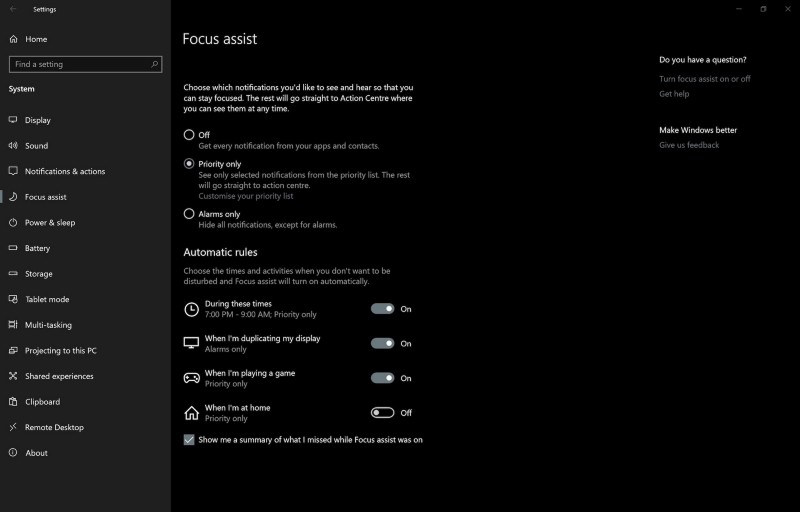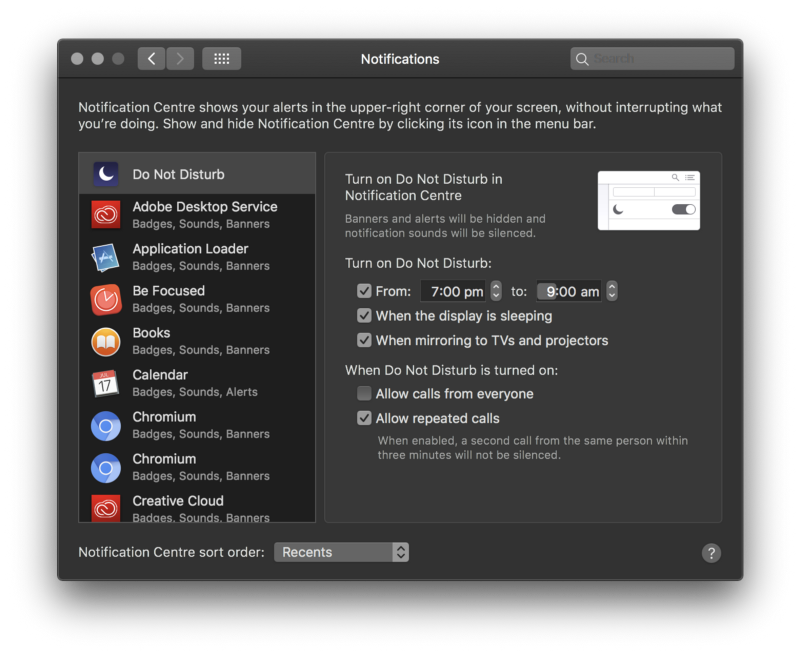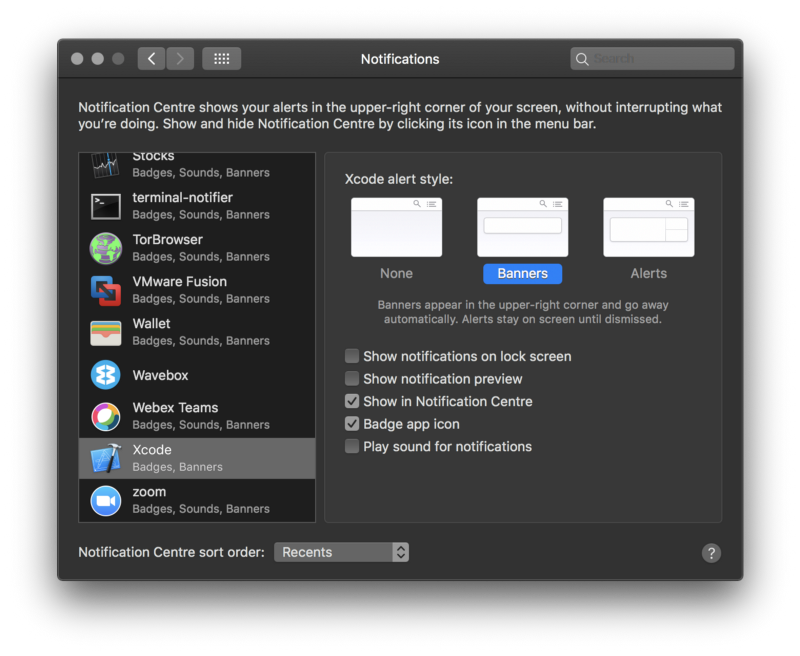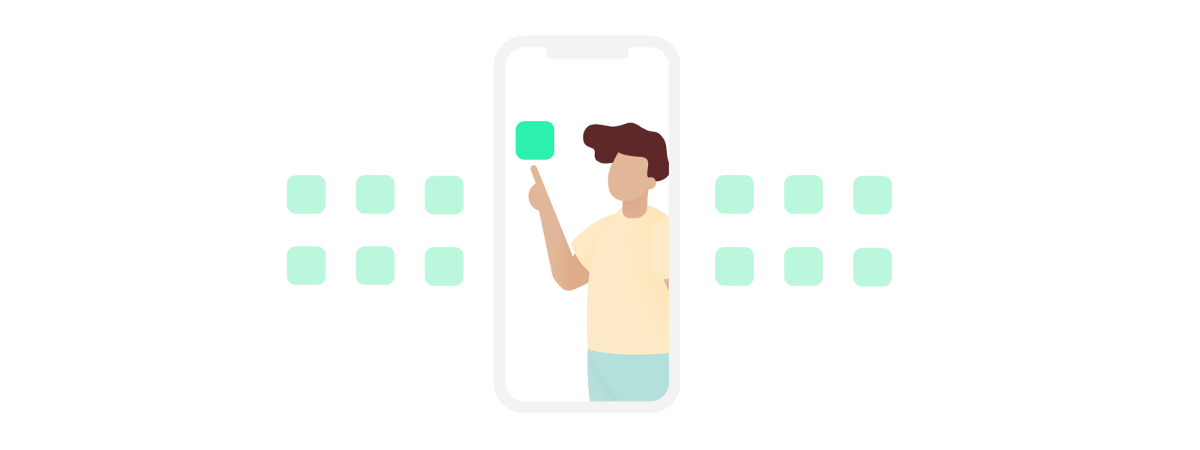Be more productive with fewer distractions
Get rid of things vying for your attention
6 minute read
( )
This post is also available in different formats so you can read on the go or share it around!
Thank https://www.drawkit.io/ by @JamesDaly90 for the slick illustrations used to make this title card
How to cut through the noise without ditching your devices
Technology allows us to accomplish great things and helps us be more productive than ever before. I use a computer on a daily basis as, I’m sure many people do, whether it’s a smartphone, smartwatch, laptop, tablet or other device. There is a feature which is here to stay that no modern device would be complete without. That feature is notifications, designed to grab your attention and unintentionally break your flow of productivity. Although they aren’t inherently bad, it’s easy to become overwhelmed and highly unproductive when notifications are left unchecked. I’ve been trying to cut down on distractions in my own life and I thought I’d share what I do to tame digital distractions, reduce stress and get some productivity back.
The notification problem
Notifications are a brilliant idea; small sandboxes that are apps on your device are able to reach out with actionable information. In the past, you might have opened your email application and waited for it to fetch your recent messages or navigated to a website and checked your email in a web browser. Perhaps you read some articles in the morning, unprompted by anything more than habit and curiosity. To sit down and mentally schedule your time to engage in an activity is a deliberate action which puts you into a particular mindset, you can be ready to focus on the task at hand with a dedicated focus. There is a downside however, it would be annoying if you’re expecting an email to arrive and you waste your time waiting, compulsively checking and waiting some more. Notifications attempt to solve this problem and on the surface, they are convenient and can boost productivity because they eliminate the guesswork; you’re free to carry on with your day and when that email arrives, you’ll know. There are, however, a couple of major flaws with notifications that make this useful feature, a harmful productivity sapper. It all has to do with the situation we are in when we receive a notification and the content of the notification itself.
Situational context
Today, both the app on your physical device and web app in your browser can tell you whenever you receive something new. Push notifications have become ubiquitous with a modern app experience. It’s instant but it’s no longer a deliberate action you choose to take, regardless of what you’re doing you are going to get notified; this is where the first problem lies.
A phone doesn’t have much context to know when it’s a good time to tell you about something. It doesn’t know that you’re in a state of flow writing code, reading an article or having dinner with your significant other. You’re getting notified regardless of the physical environment or mental context you’re in. This is detrimental to productivity, mental well being and present connection with those around you
A notification in the middle of actively engaged time tears you out of your mental state. It asks you to pause what you’re doing and shift context to focus on it; it can be difficult to reengage and pick up where you left off without a lingering feeling in the back of your mind that you need to deal with that notification eventually.
Relevance and action-ability
On any given day you could receive an enormous amount of notifications. This could be direct communication such as email, calls, text messages or direct messages from apps, or it could be indirect communication like Facebook or Instagram telling you about something a friend has posted or liked; this is where the second problem arises. I don’t really care that one friend liked another friend’s photo. How important is it that I know about this? This might sound harsh but what I mean to say is, how important is it to know about it instantaneously? Decision fatigue can wear away at your ability to make choices no matter how small they might be. Is it more important that I decide whether or not to also like the photo a friend just liked or is it more important to know that I received a message directly from my friend? I argue that the latter is much more important and deserves my attention. How we perceive the usefulness of notifications depends on the type of notification, how actionable it is and how relevant it is at the time.
There is a trend for developers to make use of notifications in apps more frequently regardless of the type of app or the relationship someone has with that app. Some apps just don’t need notifications, a notification that has nothing to say, doesn’t respect your time or is competing for your attention on a regular basis comes off like Clippy.
Regain attention and focus on what matters
It may not be apparent that notifications are detrimental to your overall mental health and productivity but if you take the time to think about your notifications, you may be surprised.
Embark on some information gathering for a day to see if you could regain some focus by asking yourself the following questions:
- How many notifications do I receive a day?
- How many of these notifications are ‘useful’ to me at the time?
- Which notifications are useful and which are not?
- Has a notification broken caused me to stop doing what I’m doing and become distracted?
Once you’ve answered these questions, you might gain a clearer picture of how notifications are taking up your time unnecessarily. Once you’re aware of the impact notifications have, you can work to help reign them in.
Over time, I found myself receiving notifications throughout the day and into the night, many of which were not useful. Apps would vie for my attention unnecessarily and try to lure me into opening and engaging with them. There were, however, some useful notifications; It’s helpful to know I received a message from someone at work with some design assets which I needed, but, these would arrive in the steady flow of all other notifications throughout the day. It became difficult to differentiate the important from the superfluous. After a while the superfluous notifications became more alluring, they pulled me away from what I was doing, breaking my train of thought, interrupting my flow.
I chose to try and tame these attention-grabbing beasts and here are some simple steps that you can help do the same.
Set boundaries
A good first step is to define some clear boundaries to make winding down a daily habit. This can be achieved with ‘Do Not Disturb’ in recent versions of iOS and MacOS or ‘Focus Assist’ on Windows 10.
I defined some boundaries as best I could, you’ll see that I don’t want notifications between 7:00 pm and 9:00 am. There is nothing important that I could receive during this time that would come in the form of a notification. It allows for you carve out some time for whatever you want to do without the burden of digital interruptions.

Windows has some nice additional rules that can be set such as allowing you to silence notifications when you get home or while playing games.


Stopping notifications from bothering you when you don’t need them in MacOS and iOS
Notifications on both MacOS and Windows can also be silenced when you’re mirroring your display, preventing awkward office situations or a shift of focus away from what’s important during a presentation.
Whether it’s spending time with people you love, unwinding with a movie or even working on a pet project. Make this time sacred and it can be your haven after a busy day.
Take control
The next step is a bit more involved but it is well worth the effort you put in. Turn off, limit or adjust notifications for each app. As with anything, your values, your priorities and what you deem important will be different to mine and that’s okay. Adjust each app’s notifications to suit your needs, if you went through and analyzed a typical day, you should be able to identify which apps are most important and prioritize which ones should have the most intrusive notification style.


Fine tuning each app’s notifications in MacOS and iOS
I like to receive notifications from apps I deem important, things like text messages — not many people have my phone number so if they call or text then it’s important.
Email is different, I have a small select number of VIPs that will warrant a notification but otherwise, my email app simply displays a badge. Email is important for work but it’s never urgent enough to warrant an interruption. I check my email once in the morning and once in the evening to try and minimize distraction during my workday and make checking my email a deliberate action. Because it’s a deliberate action which sets the context, I treat reading email more seriously and try to have an action for each item such as do the action in the email, archive, respond or, followup later.
For any apps that might have something important to say but aren’t essential, I try and judge the level of importance and figure out if it makes sense to have a less distracting notification i.e. no sound, no badge and no banner.
Although it may seem harmless and non-interrupting. Badges are a form of notification that can be distracting and reinforce guilt, they are a digital nag to open an app. Badges for things that aren’t essential should be turned off, if you want to take a look at an app it should be your choice not a psychological hijacking of your attention in the form of a little red circle over an app icon.
For other apps that don’t meet the criteria above, I simply turn off notifications.
I turn all off notifications for apps that:
- Have nothing important to say or don’t respect my time
- Are inherently distracting i.e. social media
- I will open when I want to at my leisure
That’s it.
Living with fewer distractions

I’ve been steadily trying to be more deliberate in how I interact with my devices and enforce stricter boundaries when it comes to technology. Being aware of what I wanted from my devices and how I wanted to use them drove me towards minimizing notifications and taking back time for more important things. Hopefully, these simple tips will help you cut down on unnecessary distractions that detract from what you really want to be doing.

A Fullstack Software Engineer working with React and Django. My main focus is JavaScript specialising in frontend UI with React. I like to explore different frameworks and technologies in my spare time. Learning languages (programming and real life) is a blast.